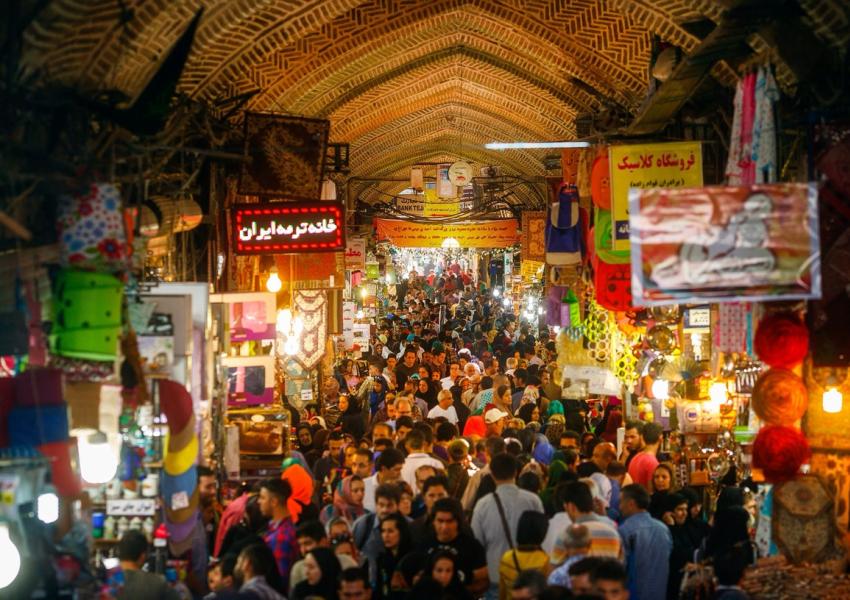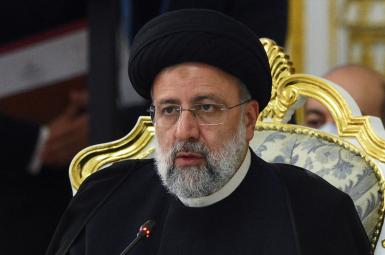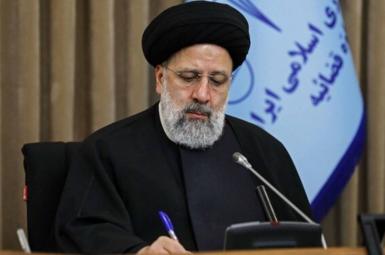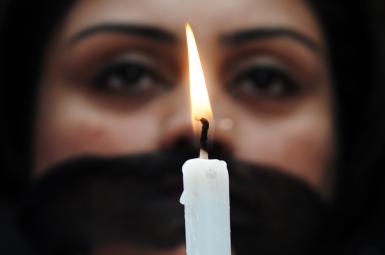
Candidates' Promises Might Lead To 100% Inflation, Stagnation in Iran
Economic experts in Iran say the implementation of outlandish economic ideas by some of Iran's Presidential candidates might block economic growth and lead to a 100 percent inflation rate.
Two of the hardline candidates in particular have come up with controversial ideas. Expediency Council Secretary Mohsen Rezaei promised to increase the cash subsidy handouts by tenfold and Deputy Majles Speaker Amir Hossein Ghazizadeh Hashemi said he would give five billion rials (roughly $ 2,000) to every newlywed couple if elected president in the controversial June 18 poll.
Vahid Shahghaghi, the dean of Kharazmi College of Economics told proreform Fararu website that one of the problems of Iran's electoral system is that there is no time to examine the candidates' plans and promises. Once the election watchdog, the Guardian Council selects who can run, candidates have less than one month to campaign. Moreover, he added that the candidates often do not have a plan in writing and usually put forward outlandish and populist economic ideas, without any other plans in the areas of culture, education, domestic politics and foreign policy.
Voters should know about the candidates’ objectives, policies and priorities as well as the financial resources they want to use to reach their goals and the implications of their plans Shaghaghi said, adding that the candidates have not done this in the current and previous rounds of the elections.
Meanwhile, Massoud Daneshmand, the former secretary general of Iran's House of Economy pointed out that the plans presented by the candidates are merely good for propaganda purposes and are not practical. "You cannot pay 4.5 million rials (roughly $200) to every Iranian every month [in cash handouts] or pay 5 billion rials to every newlywed couple because there are no financial resources for that. Even if money is printed to pay people, the economic consequences for the country will be too damaging," he said.
He added: "Of course you can cut the hidden subsidies that keep fuel prices low and pay the same amount to the people in cash. But omitting hidden subsidies will lead to an increase in the price of energy and utility bills. The price of one litre of gas could go from 30,000 to 100,000 rials or more, and this is what the candidates do not want to tell the voters."
Iran has always subsidized fossil fuels since it is an oil-producing country and people expected to pay less for fuel. But without meaningful price adjustment in 40 years, Iran has the cheapest gasoline in the world, costing the government more than $30 billion a year subsidizing it. Gasoline is sold at just over 10 cents a liter or roughly 35 cents a gallon.
Daneshmand said that the country is facing a situation of double jeopardy as eliminating the hidden subsidy and charging more for fuel will increase inflation by 100 percent, adding that "candidates have no practical economic plans and simply chant slogans to keep the voters happy. But the consequences can cause irreparable damage."
He suggested that “the true remedy includes empowering the people and boosting employment and production.”
Another Iranian academic, Morteza Ezzati of the Faculty of Economics of the Teachers Training University told Fararu that no economist would endorse the promises made by some of the presidential hopefuls. "These are populist promises and as far as the knowledge of economics is concerned, they are illogical," he said.
He said that payment of cash subsidies which started in 2009 was one of the worst economic policies of the past decades. It gave rise to inflation and created many other problems although it might have helped to keep the people happy temporarily.
According to Ezzati, with the payment of cash subsidies, the country's economic growth fell sharply since 2009 although economic growth was declining after 2006, and we are still having negative growth rates. He said declining economic growth, rising inflation and widespread unemployment was a natural outcome of paying cash subsidies.








